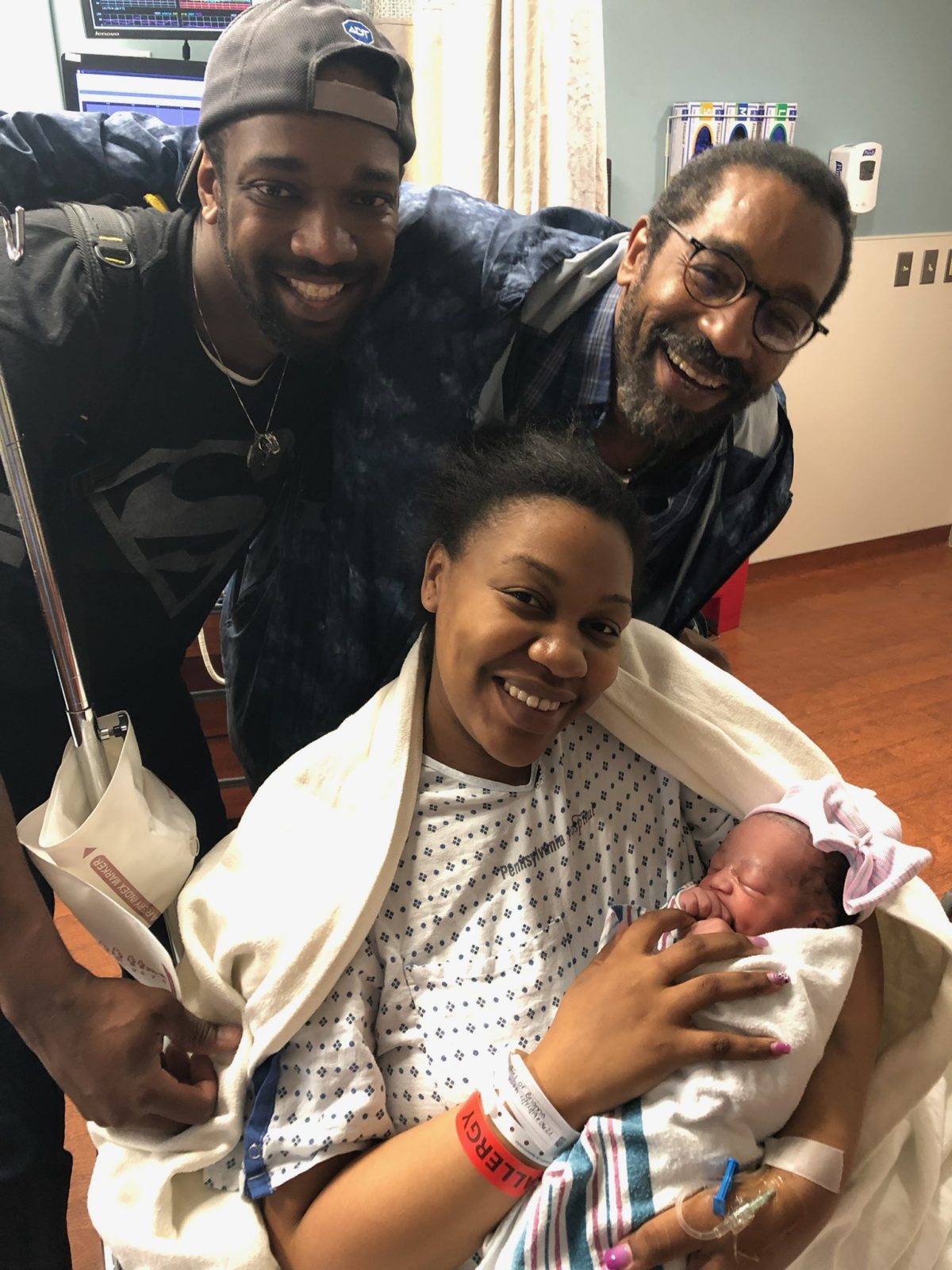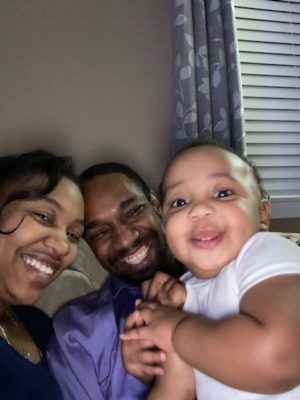The Case for Paid Leave in the United States: Brianna’s Story

Our latest report, Qualitative Paid Leave Report 2020: Furthering Our Case for Paid Leave in the United States, is based on a study we commissioned to examine how lack of paid leave affects the well-being of new mothers and their babies, particularly women working in low-wage jobs, and to amplify the experiences of low-wage working mothers in their own words. By interviewing and surveying 20 women in five states that did not require workers to have access to paid leave, we learned about how mothers navigate the experiences, demands and joys of motherhood. Brianna was one of the study participants. She offered to share her story.
—
My name is Brianna Smith, and this is my story about being a low-wage worker and dealing with an unexpected, complicated pregnancy. 
Two days before I was set to marry my now-husband, Gerald, I found out I was pregnant. I had a thought that I might be, so even though we were in Philadelphia for the wedding, which was a five-hour drive from our home in rural Erie, Pennsylvania, I found a doctor to confirm it before I helped myself to the open bar at our reception. What a way to begin a marriage! If it had been on our time, we would have waited a year before having a child. We had to restructure our budgeting to account for our baby, but we were fortunate enough to both be employed. I had been working for a big name, national bank for almost three years when I found out I was pregnant, and I very much enjoyed my job helping people plan financially and become more financially educated.
Early on in the pregnancy, we realized we would have to overcome many obstacles to receive decent health care. In Erie we faced several issues because of our race — some doctors were blatant about how they did not want me as a patient because I’m a black woman. One doctor said treatment was a little less specific in his office for ethnic couples. (Ethnic? But we’re American…) After my first ER visit where they tried to give me painkillers that are dangerous for a fetus, we ended up driving the five hours to see Dr. Cook, the doctor who confirmed our pregnancy, as often as we could.
My entire pregnancy felt like a fight, not just for my life but for my baby’s. My morning sickness and my body’s ability to recognize water were severe, which made getting to work by 8 a.m. difficult. Once at work I would spend much of the day in the bathroom, and the exhaustion was out of this world. Instead of eating, I would nap in the conference room during my lunch break. My colleagues graciously stepped in for me when I had to dart to the bathroom in the middle of a meeting with a client. Then, at 12 weeks, I experienced stabbing abdominal pain and visual disorientation. After blood testing at the ER (in Philadelphia, five hours away), I learned I was having issues with my gall bladder, and suddenly my pregnancy became high risk, requiring me to be monitored weekly. We realized that staying in Erie could be detrimental to my health and my baby’s, so we decided to begin the process of transferring our jobs to Philadelphia where my baby and I could be properly cared for.
My husband’s work was accommodating with the transfer, and I thought mine was as well. I signed paperwork stating that my transfer was approved, I completed online orientation for my new position and I was supposed to start the following Monday. We packed up our apartment and drove a moving truck to Philadelphia on December 18, and a couple of days later, on a Friday, I received a phone call from HR letting me know that my transfer had been rescinded due to an inability to comply with the attendance policy. In retrospect, my manager in Erie was unhappy with me showing up to work late and taking so many breaks, but I thought he understood my situation, and because my coworkers covered me, I thought everything was okay. I was tricked, and losing my job was a huge confidence blow.
Savanna was born early, at 35 weeks, because my bile levels were elevated, which could have made her liver work harder and sooner than it’s supposed to. Thankfully she was healthy and did not have to spend much time in the hospital, but I was not okay. I had put so much energy into getting her here safely that once she was born all the negativity I was trying to block from her just flooded me. My husband was able to take off work about four days, and during that time he made sure Savanna didn’t feel any of the negativity that was starting to consume me. I stayed with my mother for two weeks so I wouldn’t be alone, and he would visit after work. I’m so lucky to have had my mother’s support, but spouses or partners are supposed to be by the mother’s side throughout the journey, and paid leave for them is just as important as it is for the woman giving birth. 
Mothers and fathers deserve time to adjust to their new roles as parents. We deserve time to be able to get to know the children we birth without the mental duress or anticipation of returning to work looming over us. Pregnant women deserve time to be able to get comfortable with the changes they are going through and should have the support they need for medical expenses. If she needs extra time in the morning to get herself together and make sure the baby’s okay, a pregnant woman should be able to do that without being concerned with whether she’s going to lose her job. I don’t think it’s right that, as a pregnant woman who’s literally living for another person, I had to fight and continually look over my shoulder because the system was against me.
Watch Brianna talk about her experience here.
For more about the report, our work with paid leave and how you can help, visit here.
